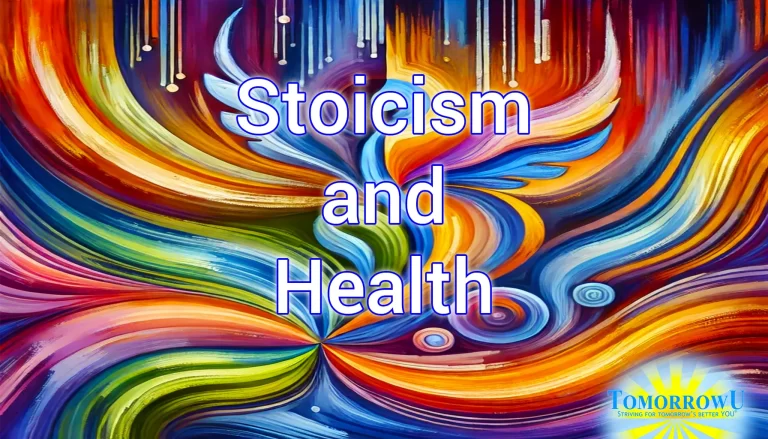The Magic Elixir: Unpacking the Wonders of Coffee
Imagine your day starting with the aroma of freshly brewed coffee wafting through the air, promising not just a jolt of energy but a cascade of health benefits. From the bustling streets of New York to the serene cafes of Kyoto, coffee is more than just a beverage; it’s a global ritual with roots deep in culture and science. But beyond its rich flavors and comforting warmth, what does coffee do for our health? Let’s dive into the world of coffee, exploring its benefits, backed by science, and offering practical tips for maximizing your coffee experience for well-being.
Coffee’s Health Benefits: A Sip of Science
1. A Natural Source of Antioxidants
Coffee is packed with antioxidants, which help fight oxidative stress and reduce inflammation in the body. The primary antioxidants found in coffee, such as chlorogenic acids and polyphenols, have been linked to improved cellular health and reduced risk of chronic diseases.
Key Takeaways:
- Antioxidants help neutralize harmful free radicals.
- Coffee is one of the richest sources of antioxidants in the Western diet.
- Regular consumption may support long-term health by protecting cells from damage.
2. Boosts Cognitive Function
Coffee is synonymous with wakefulness, but its benefits extend far beyond keeping your eyes open during early meetings. Caffeine, the primary psychoactive ingredient in coffee, blocks adenosine receptors in the brain, leading to increased alertness and enhanced cognitive function. Studies have shown that moderate coffee consumption can improve memory, mood, vigilance, and even reaction times (Poole et al., 2017). For those looking to sharpen their cognitive edge, a cup of coffee could be your brain’s best friend.
How Coffee Boosts Brain Function:
- Blocks adenosine, a neurotransmitter that promotes sleepiness.
- Increases dopamine, serotonin, and norepinephrine, enhancing mood and focus.
- Studies show moderate coffee consumption can improve memory, vigilance, and reaction times.
3. Enhances Physical Performance
Whether you’re gearing up for a gym session or preparing for a marathon, coffee can be your performance enhancer. Caffeine stimulates the release of adrenaline, the hormone that prepares your body for physical exertion. Research has demonstrated that caffeine intake can improve physical performance by up to 19%, increasing endurance and reducing perceived effort during exercise (Costill et al., 1978).
Performance Benefits:
- Boosts endurance and strength.
- Enhances motivation and focus during workouts.
- May reduce perceived exertion, making exercise feel easier.
4. Reduces Risk of Chronic Diseases
One of the most compelling arguments for coffee’s health benefits is its potential to reduce the risk of several chronic diseases.
Disease Prevention:
- Type 2 Diabetes: Regular coffee consumption has been linked to a significantly lower risk of type 2 diabetes, with a meta-analysis suggesting a 6% risk reduction per cup (van Dam & Hu, 2005).
- Liver Health: Coffee may reduce the risk of liver diseases like cirrhosis and liver cancer by up to 40% (Bravi et al., 2007).
- Cardiovascular Health: While excessive caffeine can have adverse effects, moderate consumption (3-4 cups daily) is associated with a lower risk of heart disease and stroke (Ding et al., 2014).
- Neurodegenerative Diseases: Coffee consumption might decrease the risk of diseases like Parkinson’s and Alzheimer’s due to its neuroprotective antioxidants(Ross et al., 2000).
5. Coffee and Longevity
A recent study found that morning coffee drinkers had a 12% lower risk of all-cause mortality and a 31% lower risk of dying from cardiovascular disease over a 10-year period. Interestingly, these protective effects were unique to morning coffee drinkers, with no similar benefits observed in those who drank coffee in the afternoon or evening.
Moderate coffee consumption was most beneficial for reducing all-cause mortality among morning drinkers:
- 1–2 cups per day was associated with a 16% lower risk.
- 2–3 cups per day was associated with a 28% lower risk.
- 3+ cups per day was associated with a 21% lower risk.
Additionally, higher coffee consumption—regardless of timing—was linked to a 14–19% lower all-cause mortality risk and an even greater 28–40% lower risk of dying from cardiovascular disease. While this study cannot prove causation, researchers speculate that the benefits may be related to polyphenols, improved motivation for physical activity, better sleep, or circadian rhythm regulation (Wang et al., 2025).
6. Supports Mood and Mental Health
Coffee doesn’t just perk up your morning; it can also lift your spirits. Studies have found that coffee drinkers have a lower risk of depression and suicide (Lucas et al., 2011). This might be due to coffee’s ability to increase serotonin and dopamine levels, neurotransmitters associated with mood regulation.
Practical Tips for Coffee Consumption
1. Choosing the Right Coffee
- Origin Matters: Opt for high-altitude beans from regions like Ethiopia or Central America, which are richer in antioxidants.
- Roast Type: Light roasts tend to have higher levels of chlorogenic acids, beneficial for health, than darker roasts.
2. Brewing for Maximum Benefits
- Grind Fresh: Grinding your beans just before brewing preserves the flavor and health compounds.
- Brewing Method: Use a paper filter to brew your coffee to reduce harmful compounds like diterpenes that increase cholesterol levels.
3. Timing and Moderation
- Morning Ritual: Drinking coffee in the morning may provide the most protective health benefits.
- Hydration Balance: Since coffee is a mild diuretic, ensure you drink plenty of water throughout the day.
- Avoid Additives: Limit sugar and high-fat dairy to keep your coffee healthy. Black coffee or with a dash of milk is optimal.
4. Coffee as a Social Connector
Coffee isn’t just good for health; it’s a catalyst for social interaction. Sharing a cup can be a ritual that strengthens community and personal bonds, contributing to emotional well-being.
5. Coffee for Creativity
Many creatives swear by coffee as a muse. The ritual of drinking coffee can calm the mind, providing a space for creativity to flourish, enhancing focus and idea generation.
6. Ensuring Coffee Safety
Enjoying coffee’s health benefits requires making informed choices to avoid harmful contaminants introduced during growing, processing, and packaging. Here’s how to ensure a safer cup:
- Be Aware of Contaminants: Conventional coffee may contain residues from pesticides, herbicides, and processing chemicals. Choosing organic, high-quality beans helps minimize exposure to these substances.
- Limit Microplastic Exposure: Disposable cups with plastic linings can leach microplastics into hot beverages. Research shows that a 100 ml cup of hot water in such cups can absorb about 25,000 microplastic particles within 15 minutes (Zhou et al., 2023). If you consume three hot drinks daily from disposable cups, you could ingest approximately 75,000 microplastics. Opt for glass, stainless steel, or ceramic cups to reduce this risk.
- Use Safer Brewing Methods: Plastic-based coffee makers may release harmful chemicals when exposed to heat. Instead, use brewing equipment made from glass, stainless steel, or ceramic.
- Choose Chemical-Free Processing: Some coffee brands use chemical solvents during decaffeination and processing. Opt for naturally processed or Swiss Water Process decaf coffee to avoid unwanted chemicals.
- Select Pesticide-Free Coffee: Organic, shade-grown coffee is typically produced without synthetic pesticides, making it a safer choice for long-term consumption.
By prioritizing clean sourcing and mindful brewing methods, you can enjoy coffee while minimizing potential health risks.
Wellness Wrap-Up
Coffee, when consumed mindfully, is not just a delightful beverage but a health booster. From enhancing cognitive function to potentially decreasing the risk of various diseases, coffee can indeed be a part of your health strategy. By choosing the right beans, brewing methods, and consumption patterns, you can harness coffee’s benefits while minimizing its downsides. Additionally, by making ethical and sustainable choices, you can enjoy your cup while supporting global well-being. Remember, the key is moderation and mindfulness, striving for tomorrow’s better YOU!
References
- ACOG Committee Opinion No. 462: Moderate caffeine consumption during pregnancy. (2010). Obstetrics and gynecology, 116(2 Pt 1), 467–468. https://doi.org/10.1097/AOG.0b013e3181eeb2a1
- Bravi, F., Bosetti, C., Tavani, A., Gallus, S., & La Vecchia, C. (2013). Coffee reduces risk for hepatocellular carcinoma: an updated meta-analysis. Clinical gastroenterology and hepatology : the official clinical practice journal of the American Gastroenterological Association, 11(11), 1413–1421.e1. https://doi.org/10.1016/j.cgh.2013.04.039
- Costill, D. L., Dalsky, G. P., & Fink, W. J. (1978). Effects of caffeine ingestion on metabolism and exercise performance. Medicine and science in sports, 10(3), 155–158. https://pubmed.ncbi.nlm.nih.gov/723503/
- Ding, M., Bhupathiraju, S. N., Satija, A., van Dam, R. M., & Hu, F. B. (2014). Long-term coffee consumption and risk of cardiovascular disease: a systematic review and a dose-response meta-analysis of prospective cohort studies. Circulation, 129(6), 643–659. https://doi.org/10.1161/CIRCULATIONAHA.113.005925
- Lucas, M., Mirzaei, F., Pan, A., Okereke, O. I., Willett, W. C., O’Reilly, É. J., Koenen, K., & Ascherio, A. (2011). Coffee, caffeine, and risk of depression among women. Archives of internal medicine, 171(17), 1571–1578. https://doi.org/10.1001/archinternmed.2011.393
- Poole, R., Kennedy, O. J., Roderick, P., et al. (2018). Coffee consumption and health: umbrella review of meta-analyses. BMJ, 360, k194. https://doi.org/10.1136/bmj.k194
- Ross GW, Abbott RD, Petrovitch H, et al. (2000) Association of Coffee and Caffeine Intake With the Risk of Parkinson Disease. JAMA. 2000;283(20):2674–2679. https://doi.org/10.1001/jama.283.20.2674
- van Dam, R. M., & Hu, F. B. (2005). Coffee consumption and risk of type 2 diabetes: a systematic review. JAMA, 294(1), 97–104. https://doi.org/10.1001/jama.294.1.97
- Wang, X., Ma, H., Sun, Q., Li, J., Heianza, Y., Van Dam, R. M., Hu, F. B., Rimm, E., Manson, J. E., & Qi, L. (2025). Coffee drinking timing and mortality in US adults. European heart journal, ehae871. Advance online publication. https://doi.org/10.1093/eurheartj/ehae871
- Zhou, G., Wu, Q., Tang, P., Chen, C., Cheng, X., Wei, X.-F., Ma, J., & Liu, B. (2023). How many microplastics do we ingest when using disposable drink cups? Journal of Hazardous Materials, 441, 129982. https://doi.org/10.1016/j.jhazmat.2022.129982
Note: Always consult with a healthcare professional before making significant changes, especially if you have existing health conditions.




